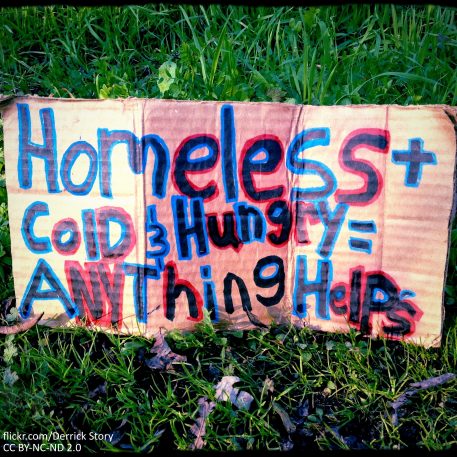
Refusal of services to financially underprivileged: HFHR contacts fair competition authority
The HFHR has sent a letter to the President of the Office of Competition and Consumer Protection, requesting him to address the problem of financially vulnerable persons and persons at the risk of homelessness who are subjected to discriminatory treatment by personnel of restaurants and other business establishments. The Foundation asked the President to inquire whether the cases in which such person are refused service should be treated as cases of practices violating collective interests of consumers.
Asked to leave
In its letter, the Foundation pointed to two random situations that attracted media coverage. The first one was the case of a financially underprivileged person who was refused access to a fast food restaurant in which they wanted to eat a hot meal bought by a family of strangers. According to witnesses, this person was not intoxicated or behaving in a way that would pose a threat to anybody. The other situation involved a homeless person who was asked to leave a petrol station where they ate meals and drank beverages bought by patrons. The person’s presence bothered nobody until a customer made a complaint in a survey questionnaire. In the assessment of the HFHR, both cases might involve discrimination on the grounds of the social and economic status on the part of employees of both establishments.
UN Guiding Principles
In its statement to the President of the OCCP, the Foundation referred to UN Guiding Principles on Extreme Poverty and Human Rights, which provide that “Poverty is an urgent human rights concern in itself. It is both a cause and a consequence of human rights violations and an enabling condition for other violations. Not only is extreme poverty characterised by multiple reinforcing violations of civil, political, economic, social and cultural rights, but persons living in poverty generally experience regular denials of their dignity and equality.” Moreover, the Guiding Principles impose on states obligation to prevent practices that lead to the discrimination and stigmatisation of persons at risk of poverty.
Denial of services cannot be based on stereotypes
“The exclusion of financially underprivileged persons’ access to services can lead to discrimination and be based on stereotypes”, HFHR’s lawyer Jarosław Jagura points out. “If a refusal of service does not result from factors such as a person’s intoxication or their improper, anti-social or threatening behaviour, then there are no objective grounds that would justify the refusal. Such practices may exacerbate the fear of the outside world experienced by persons at risk of poverty, which may further deepen the social exclusion of this group”, Mr Jagura emphasises.
Widespread problem
“Not all such cases attract media attention, and the problem may affect a larger group of people. In 2016, nearly 13% of the Polish population lived below the statutory poverty line”, indicates Adam Klepczyński, a member of HFHR’s legal team. “This means that the problem may affect a significant portion of the society”, he adds.


03.07.2017
 Cookies EN
Cookies EN